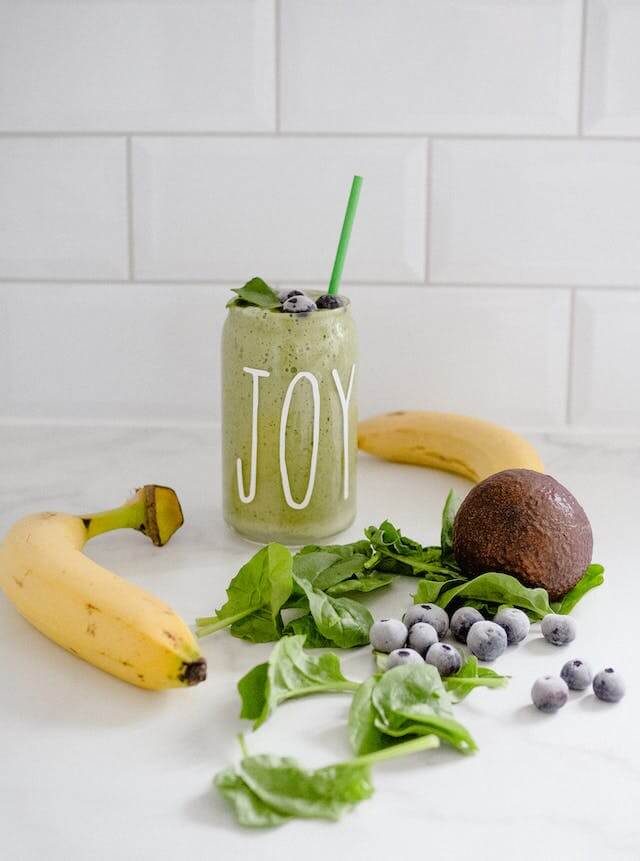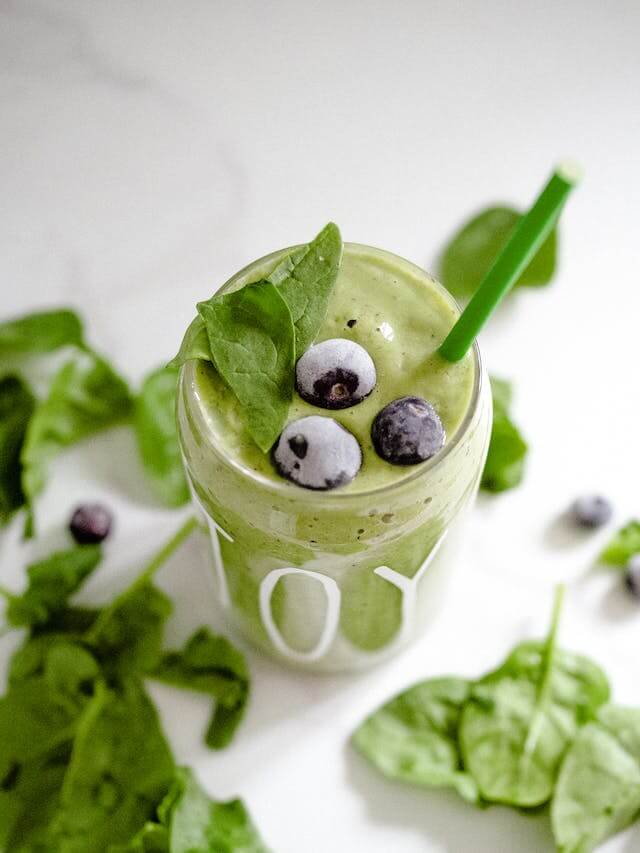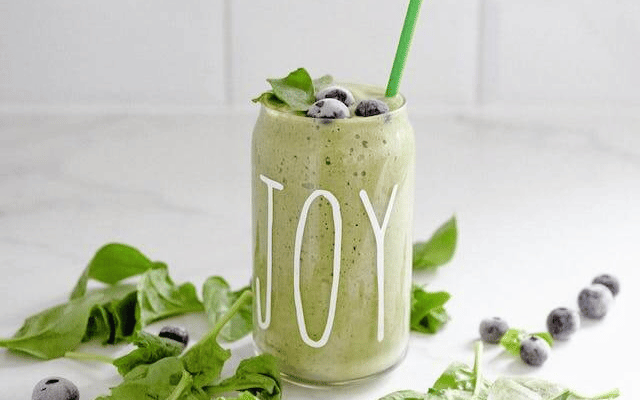As health-conscious individuals, we are constantly on the lookout for nutritious and delicious options to fuel our bodies. One popular choice that has gained significant attention in recent years is green smoothies. These vibrant concoctions of fruits, vegetables, and leafy greens offer a convenient way to pack in essential nutrients and boost our overall well-being.
But are green smoothies good or bad? To understand this, it is important to know that not everything that glitters is gold.
Here, we will delve into the world of green smoothies, exploring their nutritional profile, potential benefits, and, most importantly, the potential health threats associated with their consumption. By equipping ourselves with this knowledge, we can make informed decisions about whether green smoothies are truly good or bad for our health.
Nutritional Profile of Green Smoothies

Green smoothies typically consist of a variety of fruits, vegetables, and leafy greens. These ingredients are rich in vitamins, minerals, fiber, and antioxidants, making green smoothies a nutrient-dense choice. Leafy greens, such as spinach, kale, and Swiss chard, are particularly abundant in vitamins A, C, and K, as well as folate and iron. Fruits like berries, bananas, and citrus fruits provide a natural sweetness along with a dose of immune-boosting vitamin C. Additionally, the fiber content in them aids in digestion and promotes a healthy gut. Overall, the nutritional profile of green smoothies is undeniably impressive, offering a wide range of essential nutrients necessary for optimal health.
You may also like:
5 Healthy Smoothie Recipes – Smoothies For Weight Loss
DIY Healthy Juices And Smoothies For Lowering Cholesterol
Watermelon Smoothie Recipe
Potential Health Benefits of Green Smoothies

- Rich in Nutrients: They often contain a variety of nutrient-dense ingredients, such as leafy greens (kale, spinach, and chard), fruits, and vegetables, providing essential vitamins, minerals, and antioxidants. Source: The Effects of Green Smoothie Consumption on Blood Pressure and Health-Related Quality of Life: A Randomized Controlled Trial
- Increased Vegetable Intake: Many people struggle to meet their recommended daily intake of vegetables. Green smoothies offer a convenient and tasty way to incorporate more greens into the diet.
- Improved Hydration: The water content of fruits and vegetables in green smoothies contributes to hydration, an essential aspect of overall health.
- Digestive Health: The fiber in green smoothies can aid digestion and promote a healthy gut. Fiber supports regular bowel movements and may help prevent constipation.
- Weight Management: These can be a filling and low-calorie option, potentially supporting weight management goals when consumed as part of a balanced diet.
Related: 7 Smoothie Recipes to Lower Cholesterol
- Increased Energy Levels: The combination of fruits and vegetables in green smoothies can provide a quick source of natural sugars and other nutrients, which may contribute to sustained energy levels.
- Support for Immune Function: The vitamins and antioxidants found in their ingredients can contribute to a healthy immune system, helping the body defend against illnesses.
- Alkalizing Properties: Some proponents of alkaline diets suggest that green smoothies, with their abundance of fruits and vegetables, can help maintain a slightly alkaline pH in the body. However, the impact of dietary pH on health is a topic of ongoing research and debate.
- Potential Anti-Inflammatory Effects: Certain ingredients, such as leafy greens and fruits like berries, are known for their anti-inflammatory properties. Chronic inflammation is linked to various health issues, so consuming anti-inflammatory foods may have benefits.
- Blood Sugar Regulation: The fiber in green smoothies, along with the presence of fruits and vegetables, may contribute to better blood sugar control, which is important for overall metabolic health.
Potential Risks of Green Smoothies
- Caloric Intake: Depending on the ingredients used, green smoothies can be high in calories, especially if they contain large amounts of fruits, sweetened yogurt, or other calorie-dense additives. Excessive caloric intake can contribute to weight gain.
- Sugar Content: Some green smoothie recipes may include high-sugar fruits or sweetened yogurt, leading to a significant amount of added sugars. Excessive sugar intake is linked to various health issues, including obesity, insulin resistance, and dental problems.
- Oxalate Concerns: Certain leafy greens used in green smoothies, such as spinach and kale, contain oxalates. In individuals susceptible to kidney stones, consuming high amounts of oxalates may increase the risk of stone formation.
- Digestive Issues: For some individuals, the fiber content in green smoothies can cause digestive discomfort, including bloating or gas. Gradually increasing fiber intake and staying hydrated can help mitigate these issues.
- Interaction with Medications: Some ingredients in green smoothies, such as kale and grapefruit, may interact with certain medications. For example, kale contains vitamin K, which can interfere with blood-thinning medications. It’s important to consult with a healthcare professional if you are on medication.
- Potential for Nutrient Overload: While green smoothies are nutrient-dense, consuming an excessive amount may lead to nutrient overload, particularly if you are already getting a high level of specific vitamins or minerals from other parts of your diet or supplements.
- Raw Vegetable Concerns: Green smoothies often include raw vegetables, and while this can preserve their nutrient content, it may also pose a risk of bacterial contamination. Washing vegetables thoroughly and ensuring the cleanliness of your blender can help reduce this risk.
- Phytochemical Interactions: Some individuals may experience adverse reactions to certain phytochemicals found in vegetables and fruits. For example, individuals sensitive to compounds like histamines or salicylates may need to be cautious about their intake of certain plant foods.
- Individual Allergies: Allergies to specific ingredients in green smoothies, such as nuts or dairy, can pose a risk. It’s crucial to be aware of your own allergies and sensitivities.
- Dental Health: Frequent consumption of acidic fruits in smoothies, such as citrus fruits, can potentially contribute to dental erosion over time. Rinsing your mouth with water after consuming acidic foods can help mitigate this risk.
You may also like:
5 Healthy Smoothie Recipes – Smoothies For Weight Loss
DIY Healthy Juices And Smoothies For Lowering Cholesterol
Watermelon Smoothie Recipe
5 Health Threats of Green Smoothies
Now, the 5 health threats associated with green smoothies that you should be aware of are:
1. Tooth Decay: Green smoothies, especially those containing acidic fruits like citrus or pineapple, can erode tooth enamel over time. To minimize the risk of tooth decay, it is advisable to consume green smoothies through a straw and rinse your mouth with water after consumption.
2. Oxalate Buildup: Some leafy greens, such as spinach and Swiss chard, are high in oxalates. Consuming excessive amounts of these greens in your green smoothies may lead to oxalate buildup, which can contribute to the formation of kidney stones. Moderation is key when it comes to incorporating high-oxalate greens into your smoothies.
3. Interference with Medications: Certain medications, such as blood thinners or thyroid medications, can be affected by the consumption of green smoothies. The high levels of vitamin K found in leafy greens can interfere with the effectiveness of blood thinners, while the goitrogens present in some cruciferous vegetables can hinder thyroid function. If you take medication regularly, consult with your healthcare provider before regularly consuming green smoothies.
4. Caloric Intake: While green smoothies can be a healthy addition to your diet, it is important to be mindful of the overall caloric intake. Adding excessive amounts of calorie-dense ingredients such as nut butter, avocado, or coconut oil can significantly increase the calorie content of your smoothie. This is particularly important if you are trying to manage your weight or adhere to a specific calorie goal.
5. Food Safety: Improper handling and storage of green smoothies can pose a risk of foodborne illnesses. Ensure that all fruits, vegetables, and leafy greens are thoroughly washed before blending. Additionally, consume freshly made green smoothies immediately or refrigerate them promptly to prevent bacterial growth.
Are green smoothies good or bad for you?

After considering the potential health benefits and threats of green smoothies, it is clear that they can be both good and bad for you, depending on various factors. Green smoothies can be an excellent way to increase your intake of fruits, vegetables, and leafy greens, providing a wide range of essential nutrients. However, it is important to be mindful of the ingredients you use and the potential risks associated with excessive sugar consumption, digestive issues, and interactions with medications. Moderation, variety, and individual health considerations are key when incorporating green smoothies into your diet.
Can a smoothie replace a meal?
While smoothies can serve as a convenient and nutritious snack or meal replacement option, it is essential to ensure they contain a well-rounded balance of macronutrients. A smoothie that includes a source of protein, healthy fats, and fiber can provide a satisfying and nourishing meal replacement. However, it is important to note that not all smoothies are created equal. Pay attention to portion sizes, avoid excessive added sugars, and consider consulting with a registered dietitian or nutritionist to ensure your smoothies meet your specific dietary needs.
Green smoothies can offer a multitude of health benefits, thanks to their nutrient-dense ingredients. However, it is equally important to be aware of the potential health threats associated with their consumption. By understanding the risks and taking the necessary precautions, you can enjoy their goodness while safeguarding your health. Remember, moderation, variety, and personalized consideration of your unique health circumstances are the keys to determining are green smoothies good or bad for you. So go ahead, blend up a delicious and nutritious smoothie, and enjoy the benefits it can bring to your overall well-being.
Experiment with different recipes, be mindful of your ingredient choices, and listen to your body’s response. Whether you decide to incorporate them into your daily routine or enjoy them occasionally, always prioritize your health and well-being. Cheers to a vibrant and nourishing lifestyle!


Comments